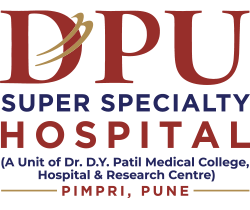Heart Transplant And Everything You Need To Know About It

Have you ever known someone who had their life transformed by a heart transplant? The journey to receiving a new heart is a profound experience marked by hope, resilience, and remarkable medical achievements. If you or a loved one face this life-changing procedure, it’s natural to feel mixed emotions and have countless questions. Understanding every step, from the initial decision and finding a donor to the surgical process and recovery, can bring clarity and peace of mind.
In this blog, we'll explore everything you need to know about heart transplants. We will offer insights and guidance to help you navigate this challenging yet hopeful journey, from eligibility to finding India's best heart transplant hospital.
Eligibility for a Heart Transplant
Not everyone with heart disease is a candidate for a heart transplant. The eligibility is determined by a team of cardiologists, surgeons, and other specialists at a heart transplant centre. Generally, candidates are those:
- Whose conditions have not improved with conventional treatments.
- Who do not have other medical conditions that could shorten their life, regardless of receiving a new heart.
- Who are healthy enough to undergo surgery and post-transplant treatments.
Finding a Donor
Finding a donor's heart can be a lengthy and complex process. Hearts are typically allocated based on the severity of illness, blood type, the donor's heart size, and the distance between the donor and the recipient. Due to the shortage of available donor hearts, there can be significant waiting times, which require patients to be on medications or mechanical support devices to manage their heart conditions while they wait.
The Surgical Procedure
A heart transplant surgery follows these general steps:
- Preparation: Once a donor heart becomes available, the patient is prepared for surgery. This includes a thorough medical check-up to ensure no infections or other medical issues are present.
- Anaesthesia: The patient is put under general anesthesia.
- Removal of the diseased heart: The surgeon makes an incision in the chest to access the heart and remove the diseased heart.
- Implantation: The donor's heart is then connected to the major blood vessels, restoring the heart’s rhythm.
- Closure: Once the new heart starts functioning, the chest is closed.
Potential Risks and Complications
Like all major surgeries, heart transplantation comes with its set of risks. These include:
- Rejection: The immune system might see the new heart as foreign and attack it. To prevent this, patients must take immunosuppressive medications for the rest of their lives.
- Infection: Due to immunosuppressive medications, there is a higher risk of infections.
- Coronary artery disease: This can develop in the transplanted heart.
Post-operative Care
After the surgery, the patient will be monitored closely in the hospital to ensure the new heart functions properly. The recovery includes:
- Regular check-ups: To monitor health and the heart's function.
- Medications: Patients need to take several medications, including immunosuppressants.
- Lifestyle changes: Patients are advised to adopt a healthy lifestyle, including a balanced diet, regular exercise, and no smoking.
Living with a Heart Transplant
Living with a transplanted heart means adjusting to a new normal. Most patients lead an active, healthy life post-transplant. However, lifelong commitments include regular medical follow-up, adherence to a healthy lifestyle, and taking medications precisely.
Emotional and Psychological Considerations
Undergoing a heart transplant is not only a physical challenge but also an emotional journey. Patients may experience a range of emotions, from fear and anxiety to relief and gratitude post-surgery. Recognising these feelings as standard parts of the recovery process is vital.
Many transplant centres offer psychological support through counsellors or support groups, where patients can share their experiences and coping strategies. Such support structures can significantly enhance emotional well-being and provide much-needed assurance during challenging times.
Financial Aspects of Heart Transplantation
The cost of a heart transplant can be overwhelming, as it encompasses the surgery, hospital stays, medications, and ongoing care. The price varies significantly in India based on the hospital and the patient's specific needs.
It is crucial to understand what aspects of the transplant process are covered by insurance and explore additional financial assistance options. Some charitable organisations also offer financial aid to help manage the costs associated with a heart transplant.
Preparing for Surgery
Pre-Transplant Evaluation
Before the transplant, a thorough evaluation is necessary to ensure the patient is a suitable candidate. This includes detailed heart function tests, blood tests, and assessments of other organs to ensure they are healthy enough to support a new heart.
The Waiting List
Once approved, patients are placed on a waiting list for a donor's heart. During this period, maintaining optimal health is crucial. Regular check-ups and adherence to prescribed treatments help manage the heart condition while awaiting the transplant.
Post-Transplant Rehabilitation
Physical Rehabilitation
After the transplant, physical rehabilitation is essential to regain strength and improve the functioning of the new heart. A tailored exercise program helps improve cardiovascular health without putting undue strain on the new heart.
Dietary Management
Adopting a heart-healthy diet is crucial after a heart transplant. Dieticians at the transplant centre can provide personalised dietary plans that support heart health and overall well-being.
Long-Term Health Management
Regular Monitoring
Lifelong, regular medical checkups are necessary to monitor the function of the transplanted heart. These checkups often include blood tests, heart biopsies, and imaging studies to detect any signs of rejection or other complications.
Medication Adherence
Taking medications exactly as prescribed is critical to prevent rejection and manage other health issues. Communicating with healthcare providers about medication side effects or concerns is essential.
Community and Support
Connecting with Others
Many heart transplant recipients find comfort and encouragement in connecting with others who have gone through similar experiences. Online and in-person support groups can provide a space to share stories and tips.
Advocacy and Awareness
Some recipients choose to become advocates for organ donation, using their stories to inspire others and raise awareness about its importance.
Conclusion
Heart transplantation is a complex but life-enhancing procedure for those with severe heart conditions. Understanding the process, risks, and lifelong commitments can help patients and their families make informed decisions. With the right medical team and support, many transplant recipients go on to live full and active lives.
Moreover, when it comes to heart transplantation, selecting a facility is crucial. Look for the best heart transplant hospital in India with a high success rate and comprehensive care, including pre-transplant evaluation, transplant surgery, and post-operative care. By arming yourself with knowledge and choosing a capable and compassionate hospital, you can navigate the journey of heart transplantation with confidence and hope.








